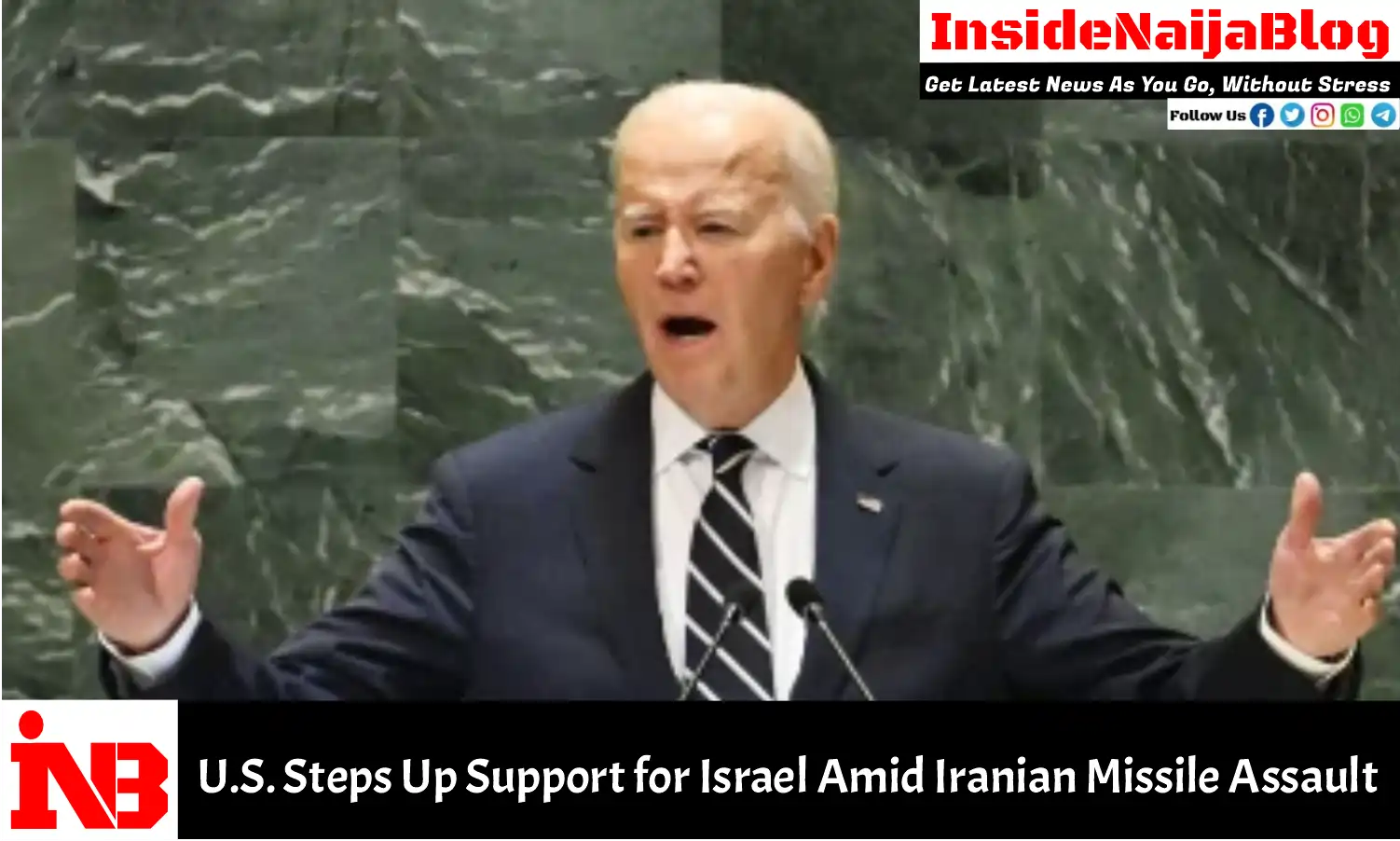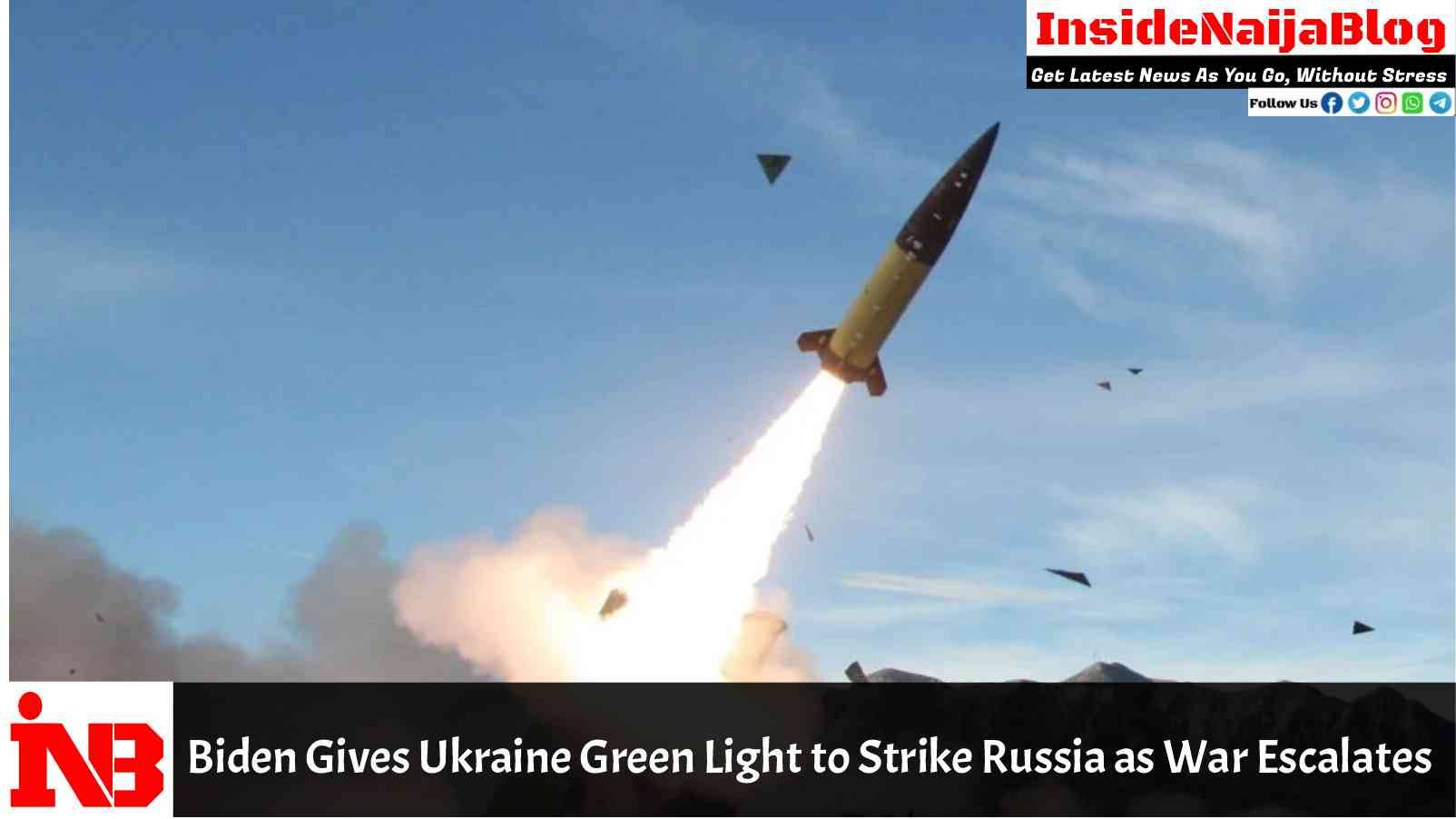In a significant escalation of tensions in the Middle East, President Joe Biden has ordered U.S. forces to actively support Israel in its defense against a series of missile attacks launched by Iran. This directive, conveyed through a formal statement from the White House, underscores the United States’ unwavering commitment to Israel’s security and stability in a volatile region.
The announcement came as Iran’s Islamic Revolution Guards Corps declared that it had targeted Israel with dozens of ballistic missiles, intensifying fears of a broader conflict. In response to this alarming situation, Sean Savett, the spokesperson for the U.S. National Security Council, provided crucial updates regarding the administration’s strategy. He indicated that President Biden and Vice President Kamala Harris are closely monitoring the developments from the White House Situation Room, ensuring that they receive regular briefings from their national security team. This high level of engagement illustrates the administration’s commitment to addressing the evolving crisis and maintaining a robust defense posture.
Biden’s directive to the U.S. military includes specific instructions to aid Israel in intercepting missiles aimed at its territory. This military support not only enhances Israel’s defensive capabilities but also sends a clear message to Iran regarding the potential repercussions of its aggressive actions. The decision to engage U.S. forces reflects a longstanding principle of U.S. foreign policy—one that prioritizes the protection of its allies, particularly in situations where their sovereignty is threatened.
As the Iranian missile strikes unfolded, the situation on the ground in Israel became increasingly precarious. The threat of missile attacks is not new; however, the scale and intensity of this assault represent a notable shift in Iranian military strategy. The involvement of the Islamic Revolution Guards Corps further complicates the geopolitical landscape, as this entity is known for its direct role in Iran’s regional military operations and its support for proxy groups across the Middle East.
The implications of this escalation extend beyond the immediate conflict. U.S. military support for Israel could lead to a wider confrontation involving multiple state and non-state actors in the region. Observers are particularly concerned about the potential for retaliatory actions from Iranian allies, which could include groups such as Hezbollah in Lebanon or various militias in Iraq and Syria.
International reactions to this development are also noteworthy. Several nations have called for restraint on both sides, urging diplomatic solutions to prevent further escalation. The United Nations has expressed concern over the civilian toll that such military engagements could inflict, emphasizing the need for a peaceful resolution to the ongoing tensions. However, the U.S. administration remains firm in its stance, reinforcing its commitment to Israel while balancing calls for restraint with a readiness to respond to further Iranian aggression.
As this complex situation unfolds, analysts will be closely monitoring the implications for U.S. foreign policy and military strategy in the Middle East. The Biden administration’s approach may set the tone for future engagements and alliances, potentially reshaping the landscape of Middle Eastern politics for years to come. The coming days will be critical in determining not only the fate of U.S.-Israel relations but also the broader dynamics of conflict and cooperation in a region fraught with challenges and uncertainties.




